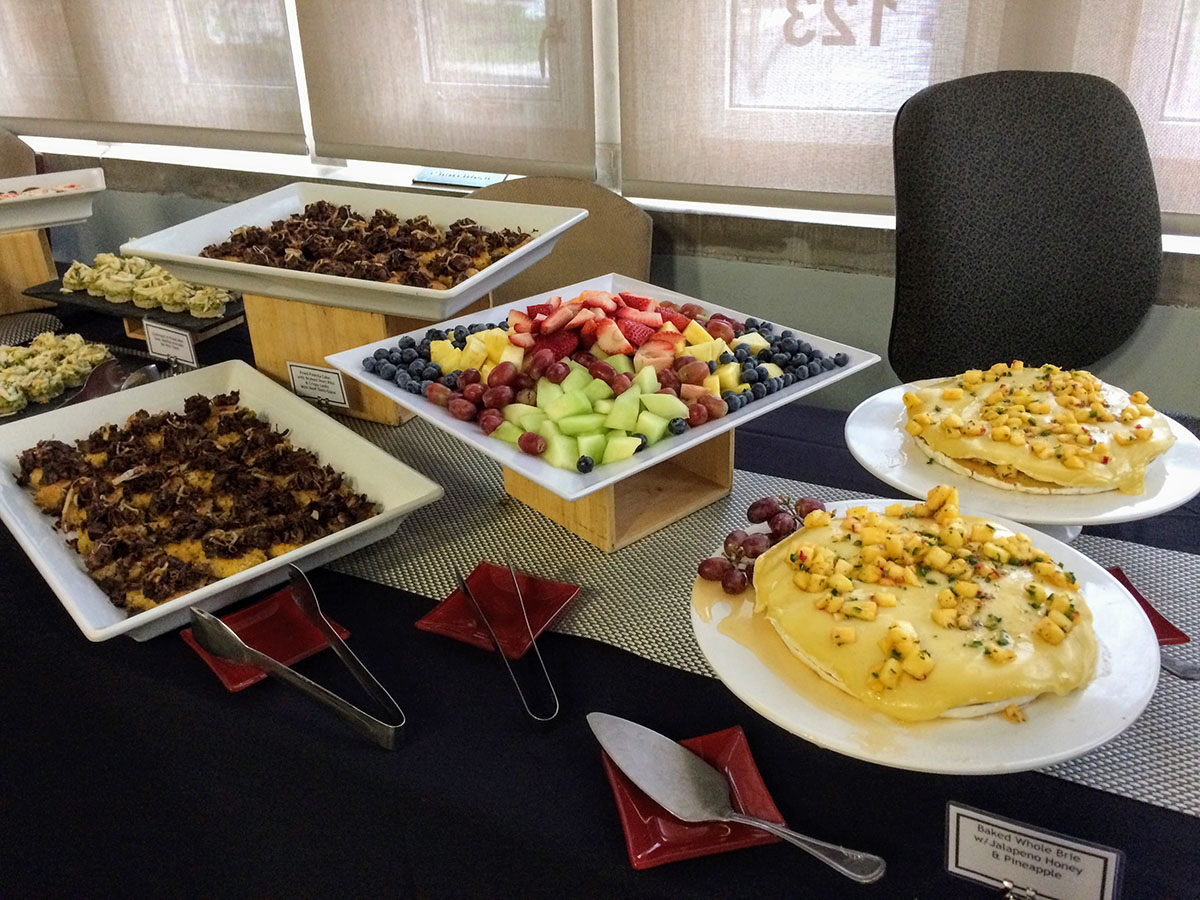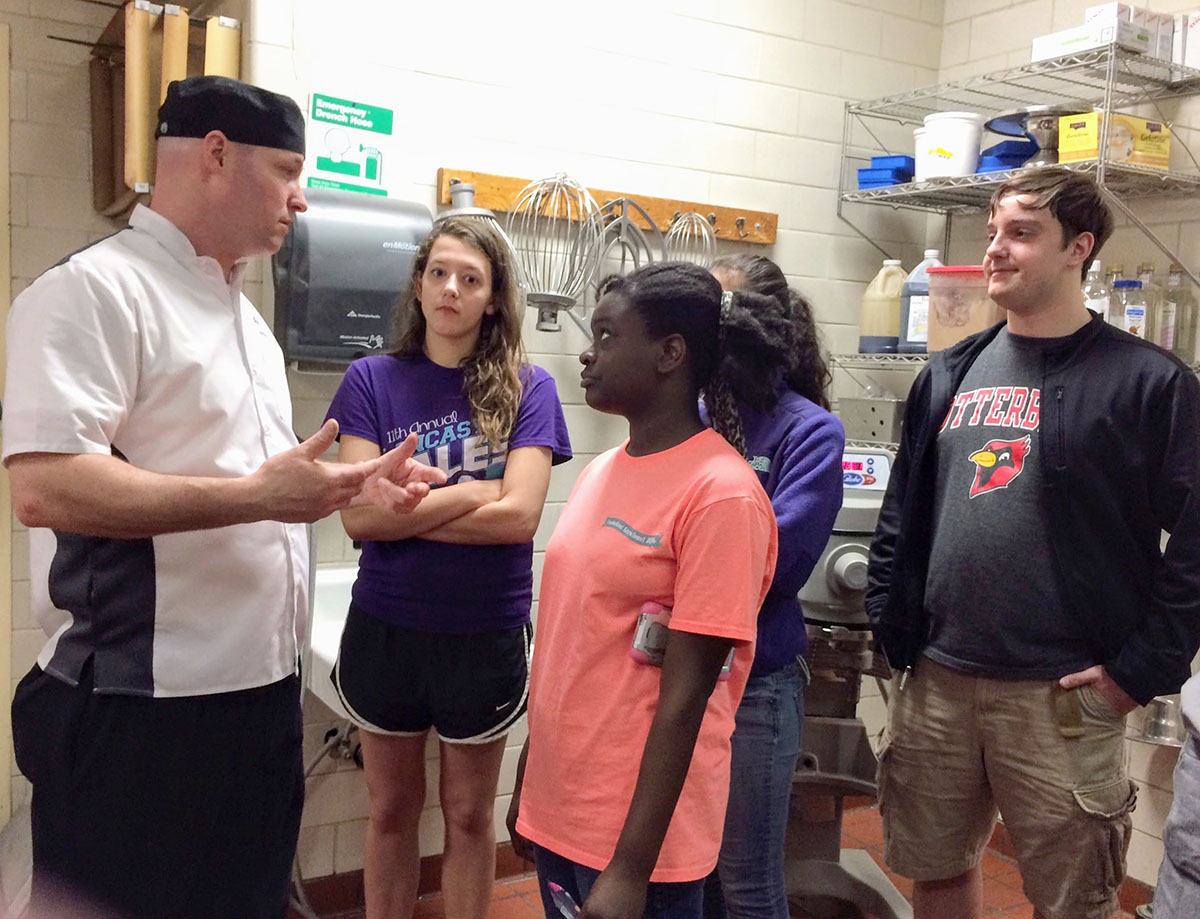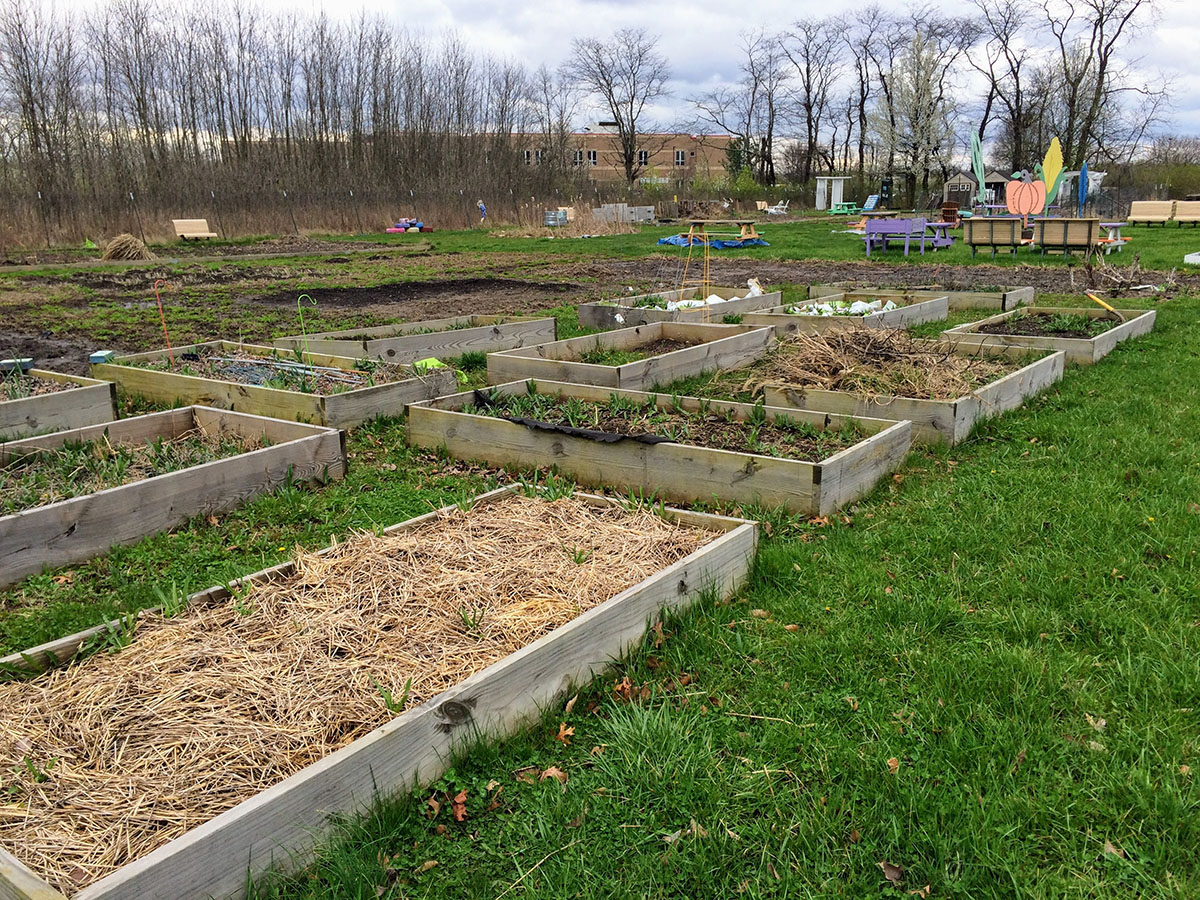Two Days in the Life of a Fellow
As a Bon Appétit Fellow, I regularly find myself in uncharted territory, meeting new people and seeing new places as I travel to the 13 different Bon Appétit accounts I support along the East Coast, far away from my Midwestern home. It is one of the most exciting and rewarding aspects of this special position.

Delicious spread of baked brie with jalapeño honey, fresh fruit, and shredded beef polenta cakes for the Defend Our Coffee discussion
Not long ago I visited Otterbein University in Granville, OH. Over two days, I met a wide swath of Otterbein’s kind campus community. On my first day, I gave three presentations to very different audiences: a lecture in an environmental geology class; a discussion in a sociology class; and an evening panel discussion in partnership with a student group, Plan-It Earth, and the Environmental Defense Fund’s student organizing arm, Defend Our Future. This event, called “Defend Our Coffee,” was particularly exciting because I was able to speak alongside knowledgeable panelists including the head roaster and buyer for Westerville’s Java Central Café and a biology professor whose research focuses on coffee plants and production. We discussed how climate change threatens coffee production, as well as Bon Appétit’s Low Carbon Lifestyle commitments and where Otterbein buys its coffee (from the Farm to Fork roaster Crimson Cup). More than 60 students came, and the Bon Appétit catering team treated them to some amazing hors d’oeuvres.

Otterbein Executive Chef Martin Brennan leads students on a kitchen tour
During breakfast and lunch the next day, I hosted a table to sign up students for a behind-the-scenes kitchen tour of the Bon Appétit operations. General Manager Amanda DeWitt and I recruited five students to see how their food is prepared and learn about Bon Appétit’s kitchen and sustainability practices. The group was awed by the sheer volume of from-scratch entrées and baked goods that our chefs make every day. They asked great questions about Bon Appétit’s seafood and animal welfare policies. I learned afterward that one student happened to be a member of a campus animal-rights group; he had no idea Bon Appétit was doing so much work around humanely raised meats and was so thankful to have made the tour.
Later that afternoon, I met with more student environmental activists from Plan-It Earth and a food and sustainability group called SEEDS. This meeting included a tour of Otterbein’s community garden located near its equestrian center a mile or so off-campus. Community members can use plots in the summer to grow produce, and much of the harvest is donated to the Westerville Area Resource Ministry. In addition, SEEDS uses the garden — which includes a pollinator habitat, compost piles, and sculptures made from recycled materials — to host educational events with local students (the garden is also near a middle school).

A full view of the Otterbein Garden, includes raised beds, other plots, composting, picnic area, and small pond
SEEDS and Plan-It Earth are a part of Otterbein’s Center for Community Engagement, and together these groups are spearheading food recovery efforts at Otterbein. I ended my visit by meeting with Center for Community Engagement and Bon Appétit teams to discuss what food recovery at Otterbein might look like.
I know I only scratched the surface of all the great people and projects going on at Otterbein, but I was thrilled by how many people I was able to speak with and engage in so many different food issues. Perhaps the only thing more challenging than navigating new territory is saying goodbye once you’ve made new friends.